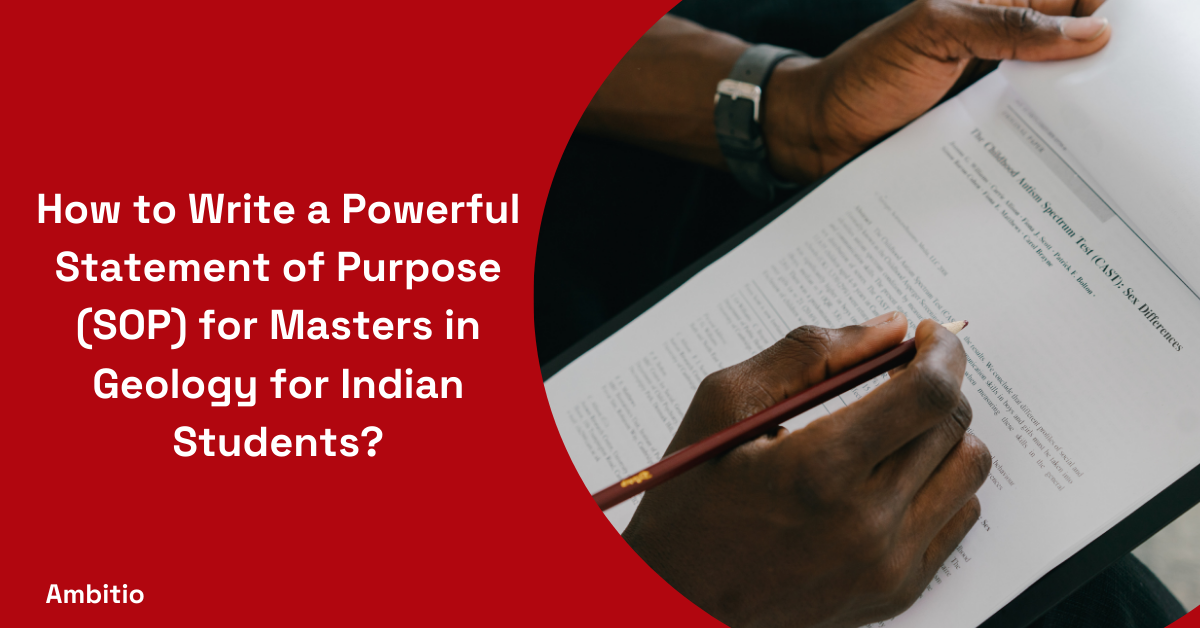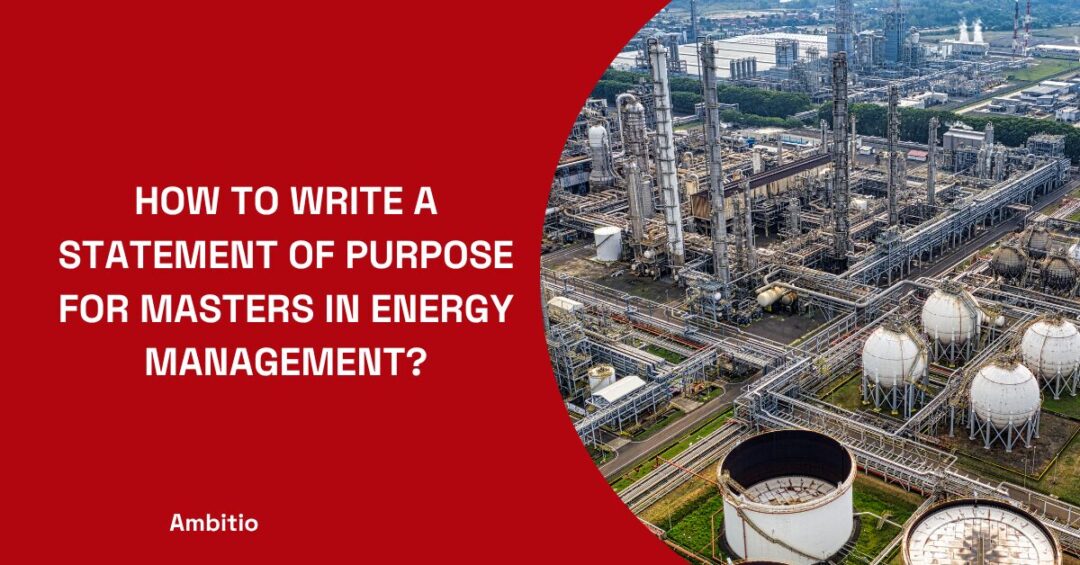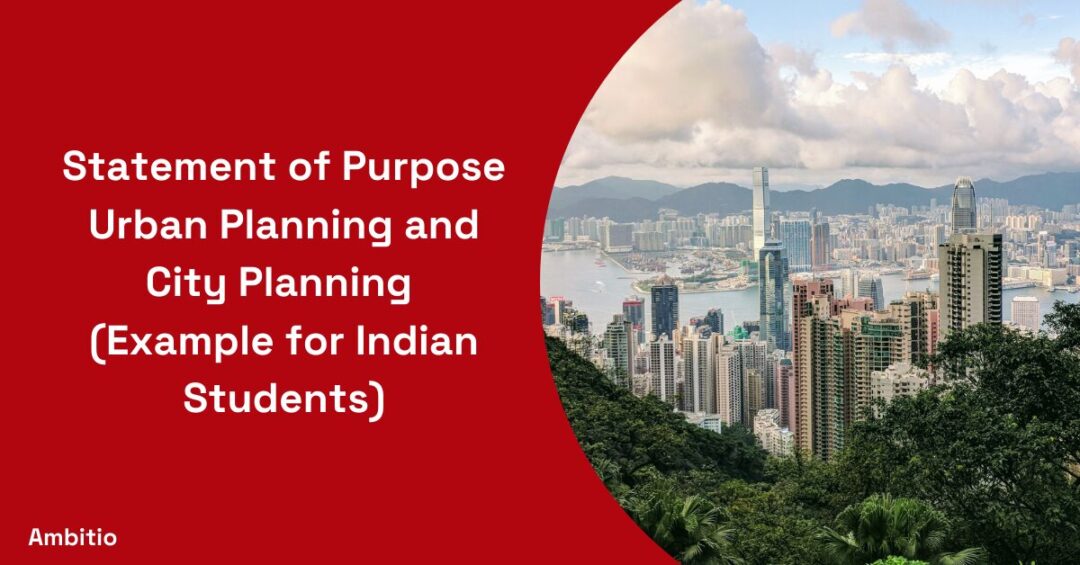30 April 2025
5 minutes read
How to Write a Powerful Statement of Purpose (SOP) for Masters in Geology for Indian Students?

Key Takeaways:
- Statement of purpose for masters in geology is crucial for Indian students to highlight their academic background, work experience, and career goals, helping them stand out in competitive applications.
- Emphasize key elements like relevant coursework, research interests, and skills to demonstrate your preparedness for the program.
- Top universities such as MIT, Stanford, and ETH Zurich offer exceptional programs, making a strong SOP essential for admission and future success.
Applying to a master’s program in geology can be a daunting task, especially for Indian students aiming for top universities. With fierce competition and high expectations, your statement of purpose (SOP) plays a crucial role in showcasing your passion for earth science and your academic journey. It’s not just another essay, but the key document that defines your future career path.
Many applicants struggle to express their experience, interests, and goals in a way that resonates with admission committees. The challenge is clear: how do you stand out in a sea of applications? The answer lies in crafting a personalized SOP that highlights your background, research goals, and commitment to learning at a graduate level.
Why Your Statement of Purpose Matters for Masters in Geology?
Your statement of purpose for masters in geology is more than just a requirement, it’s a critical part of your application that provides insight into your academic background, career aspirations, and passion for the field. For Indian students aiming to pursue a degree in this specialized field, this document serves as an opportunity to explain how your undergraduate work and professional experience have shaped your desire to further your knowledge in areas like structural geology, geochemistry, and environmental science.

A well-crafted SOP not only highlights your aptitude and previous exposure to subjects like tectonics, volcanic modeling, or igneous petrology but also demonstrates your understanding of the program’s structure. It shows how your academic and professional experiences, along with your ultimate academic goals, align with the resources, faculty expertise, and opportunities offered by the graduate school. This is your chance to showcase why you are the ideal candidate to enroll and pursue advanced studies in geology.
Key Elements to Include in Your Statement of Purpose for Masters in Geology
When writing your statement of purpose for masters in geology, it’s essential to highlight key elements that demonstrate your preparedness for the course, as well as your passion and commitment to pursuing further education in the field.

This document is your opportunity to show how your background, interests, and career goals align with the program’s offerings.
Academic Background and Motivation:
Explain how your undergraduate studies in geology or related fields, such as geophysics or environmental science, have laid a strong foundation. Highlight specific coursework or projects (like structural geology, mineral studies, or volcanic research) that fueled your interest.
Work Experience and Practical Exposure:
Showcase any relevant work experience, such as internships or projects in the industry (mining, environmental consulting, etc.), and how it has exposed you to real-world geological challenges. This experience demonstrates your readiness to dive deeper into the field.
Research Interests and Career Goals:
Describe the specific areas of geology you want to specialize in, whether it’s volcanic activity, plate tectonics, or geochemistry, and explain why. Connect these goals with the faculty expertise and resources offered by the college you’re applying to.
Skills and Analytical Aptitude:
Emphasize your analytical skills, such as proficiency in using geological modeling tools, GIS, or computer programs for data analysis. Highlight any specialized training you’ve received in techniques like rock analysis, geophysical surveys, or mathematical modeling.
Future Plans and Contribution:
Outline your career aspirations, whether you want to become a geologist in the industry, pursue a Ph.D., or work on environmental issues. Mention how the program’s structure, faculty guidance, and research opportunities will help you achieve your ultimate academic goal and contribute to the geological community.
By weaving these elements into your SOP, you can effectively convey your depth of knowledge, your passion for geology, and your readiness to take the next step in your education and career.
Tips for Writing a Compelling SOP for Geology Programs
Writing a compelling statement of purpose for masters in geology is crucial for Indian students who want to stand out in a competitive application process. The SOP should reflect not only your academic journey but also your passion for the field and your aspirations for the future. Here are some key tips to make your SOP shine:
1. Start with a Strong Introduction
Begin by briefly stating your academic background and what motivated you to pursue a degree in geology. Mention specific interests such as volcanic studies, geophysics, or environmental issues, and how they’ve shaped your career goals.
2. Clearly Define Your Goals and Aspirations
Explain why you want to pursue this MSc or Ph.D. program. Whether it’s to study volcanic activity, gain deeper knowledge of magmatic systems, or explore environmental perspectives, your goal should align with the course’s offerings and the professor’s areas of expertise.
3. Highlight Your Relevant Experience
Discuss your academic experiences during your bachelor’s degree, including any significant projects or research topics you worked on. Referencing a geology essay or specific topics you’ve covered, such as mineralogy or tectonics, can show your depth of understanding.
4. Show Your Fit for the Program
Demonstrate how the program’s features, like its curriculum, faculty specialists, and research opportunities, align with your background and goals. Mention any professors whose research interests align with your own and why their guidance will be beneficial.
5. Link Your Future Plans with the Program
Connect your aspirations to the program. Whether you aim to pursue a career in the industry or continue to a Ph.D., explain how the system and structure of the program will help you earn the necessary skills and knowledge.
6. Use a Personal and Professional Tone
Your SOP should be both personal and professional. While you want to share your passion for geology, it’s equally important to convey professionalism by keeping the tone formal but conversational. Avoid overly technical jargon unless necessary.
By incorporating these tips into your SOP, you can present a compelling narrative that showcases both your academic background and professional ambitions, ultimately improving your chances of being admitted to your desired geology program.
10 Top Universities to Study Masters in Geology
A master’s degree in geology offers students a chance to specialize in various exciting fields such as geophysics, environmental geology, structural geology, and volcanology. The knowledge and skills gained can open doors to careers in both the private sector and academia, offering competitive salaries and excellent job prospects worldwide.
Here are 10 top universities to study a Master’s in Geology:
| University | Average Tuition Fees (USD) | Average Salary After Graduation (USD) | Exams Required |
|---|---|---|---|
| Stanford University | $50,000 | $80,000 | GRE, TOEFL/IELTS |
| Massachusetts Institute of Technology (MIT) | $47,000 | $85,000 | GRE, TOEFL/IELTS |
| University of California, Berkeley | $30,000 | $75,000 | GRE, TOEFL/IELTS |
| Harvard University | $51,000 | $90,000 | GRE, TOEFL/IELTS |
| University of Cambridge | $40,000 | $70,000 | IELTS, GRE (for international students) |
| Imperial College London | $45,000 | $70,000 | GRE, IELTS |
| ETH Zurich – Swiss Federal Institute of Technology | $1,500 (for EU students) / $10,000 (for non-EU students) | $85,000 | TOEFL/IELTS, GRE |
| Australian National University (ANU) | $35,000 | $65,000 | IELTS, GRE |
| University of Chicago | $50,000 | $75,000 | GRE, TOEFL/IELTS |
| University of Edinburgh | $30,000 | $60,000 | IELTS, GRE |
Conclusion
Your statement of purpose for masters in geology is a vital document that reflects your passion, academic journey, and career aspirations. For Indian students, this SOP serves as an opportunity to combine your bachelor’s education with your desire to specialize in fields like volcano studies, environmental geology, or mineral exploration. By emphasizing your interest and future goals, you can make a compelling case for your application.
To make this process easier, download a sample SOP and get expert guidance. Let Ambitio help you craft a standout statement that will set you apart from other candidates.
FAQs
What is the purpose of a Statement of Purpose (SOP) for a master’s in geology?
An SOP shows the admissions committee your background, motivations, and goals, proving why you’re a good fit for the geology program and your career aspirations.
What should I include in my SOP for geology?
Include your academic qualifications, research/fieldwork experience, motivation, specific interests in geology, reasons for choosing the program, and future career/research goals.
How long should my SOP be?
Generally, aim for 500–1,000 words, but always check the specific length requirements of each university.
How should I structure my SOP?
A typical structure includes an introduction, academic/professional preparation, research interests, program fit, and a conclusion about future goals.
Should I mention specific professors or research groups?
Yes, mentioning faculty or research groups whose work aligns with your interests shows that you’ve researched the program.
How personal should my SOP be?
Keep it primarily academic, but include personal experiences if they directly relate to your interest in geology or research goals.
What are common mistakes to avoid in a geology SOP?
Avoid repeating your CV, being too generic, failing to tailor the SOP, exceeding the limit, or focusing too much on unrelated personal background.

You can study at top universities worldwide!
Get expert tips and tricks to get into top universities with a free expert session.
Book Your Free 30-Minute Session Now! Book a call now




























